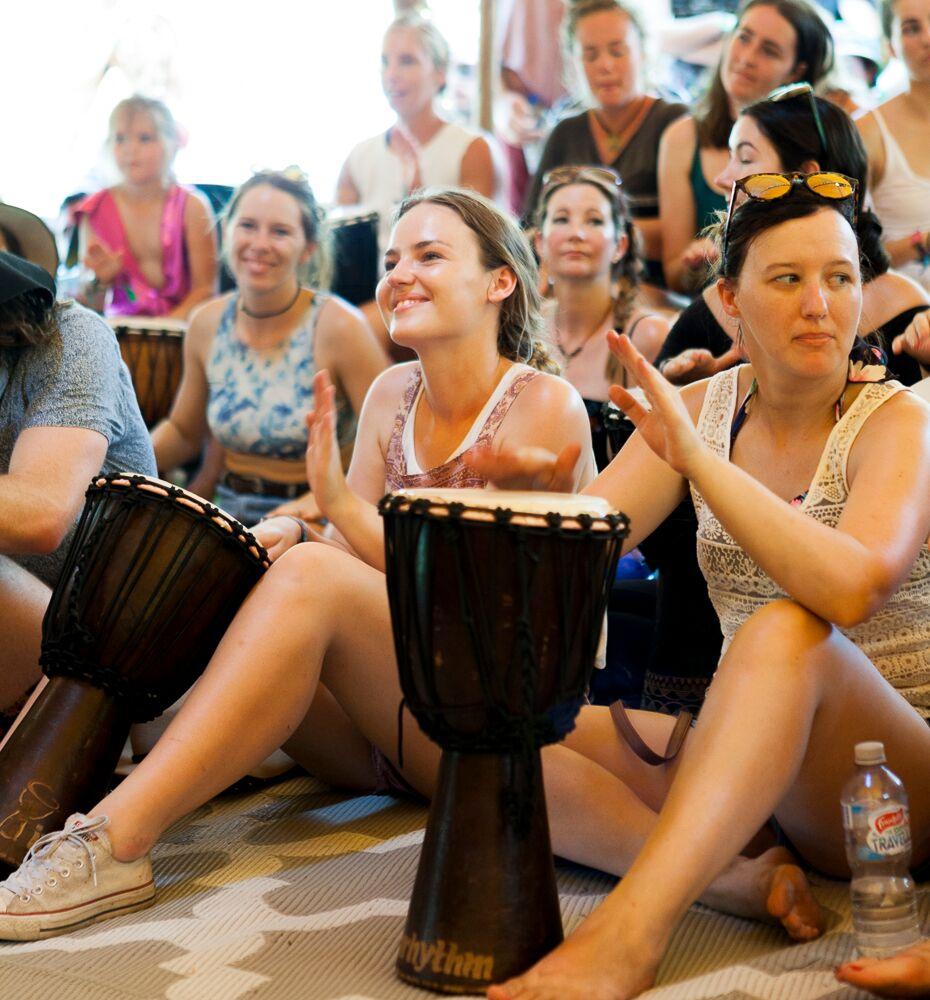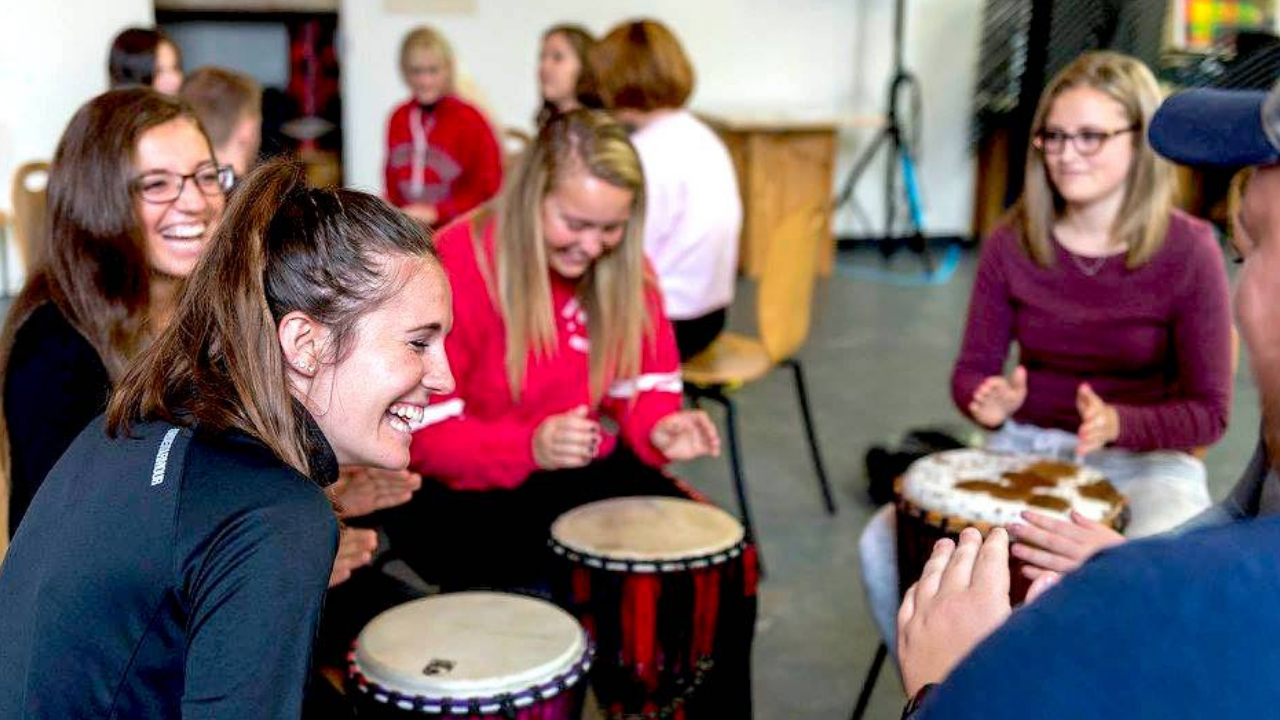Drumming for emotional release is more than a rhythm—it’s a guide to unlocking emotional freedom. Explore techniques that resonate with your soul and bring harmony within.
Through its rhythmic expression, drumming has been an integral part of human civilization for thousands of years, keeping us connected to our origins. But what really sets drumming apart aren’t just the compelling sounds and rhythmic beats—it’s also the significant influence it has on our mental well-being.
The Therapeutic Powers of Drumming
Historical Origins
There are longstanding cultural and historical origins to drumming as a therapeutic and expressive art form. Drums have been used for thousands of years in ceremonial settings and traditional tribal rituals to elicit feelings, establish spiritual connections, and promote healing.
Scientific Support
Contemporary science supports the therapeutic benefits of drumming beyond its historical relevance. Drumming has been found to reduce stress, anxiety, and even strengthen the immune system. The rhythmic vibrations that drumming produces profoundly affect the brain, releasing endorphins and enhancing feelings of wellbeing.
Cultural Importance
For ages, drumming has been an integral part of the traditions of many nations worldwide. The cultural importance of drumming is extensive and diverse, ranging from the contemplative beats in Native American rituals to the heartbeat-like rhythms of African drum circles.
For those who are not familiar, a drumming circle, sometimes called a drummer circle, is a group of individuals who get together to exchange and use percussion instruments and drums to produce rhythmic music.
However, drumming circles are more than simply pastimes—did you know that?
Here are the amazing, scientifically supported advantages of drumming and drum circles for mental health:
It boosts the immune system
Drumming can prevent illness and other pathogens while fostering physical well-being. In his research, neurologist and Yamaha Music & Wellness Institute head Barry Bittman found that group drumming boosted T-cells, which are immune system cells that help fight against diseases like AIDS, cancer, and other infections.
It promotes relaxation
It eases tension, worry, and stress. One study found that following an hour-long drumming practice, participants’ levels of stress hormones reversed. Particularly, group drumming has been shown to benefit those in high-stress jobs. One’s risk of developing serious illnesses like heart attacks and strokes is inversely correlated with their level of stress.
It gives emotional barriers a way out
Our bodies get more tense and obstructed the more unpleasant emotions we suppress. For people who have suffered trauma or addiction, drumming can be a therapeutic outlet. Through the stimulation and release of negative energy that their instrument’s sound vibrations provide, drummers learn how to effectively restore their mental health. an online treatment platform that offers a wealth of free, educational, and practical articles on all things mental health in case you find yourself in need of more guidance on mental health.
It supports your ability to be present-minded
One method to experience flow is through rhythm and drumming, which is a total anchoring in the present moment and a liberation from time restrictions. According to research, drumming can serve as a diversion from suffering and loss. It helps the musician concentrate on the present moment by easing anxieties about the past and future.
It is a route to deeper relationships with both people and oneself
In addition to facilitating social connections with like-minded individuals, group drumming offers a profound means of building physical, emotional, and spiritual connections. Additionally, it offers interpersonal support, which is quite helpful, especially for those who are battling addiction or a mental disease. Group drumming can help people become more self-aware and reduce feelings of isolation, alienation, and self-centeredness on an individual basis.
Reduction of Stress
Playing an instrument or drumming for emotional release may be a very effective way to release tension. The rhythms and beats that keep repeating might temporarily divert your attention from daily concerns.
Increasing Intelligence
It may surprise you to learn that drumming circles may be mentally taxing! It has been demonstrated that drumming for emotional release enhances cognitive abilities, including memory and focus.
An upsurge in mood
Do you get a bad feeling? A drum circle might be the solution. Drumming can improve your mood by releasing endorphins, which are the body’s natural analgesics.
Improved Expression of Oneself
In a drum circle, there are no language restrictions on how people may express themselves. By connecting with this innate mode of expression, people may connect with their emotions and express them via rhythms.
Strengthening of Social ties
Drumming circles are social gatherings by nature. Participants frequently have a stronger sense of connection with one another when they join together to produce rhythm. This common experience can lessen feelings of loneliness and isolation by fostering a sense of connection and belonging.
Improvement in Presence and Mindfulness
Similar to meditation, drumming demands present-moment awareness. Participating in drumming circles can improve mindfulness by focusing on the beat and synchronising with others. According to a study published in PLOS ONE, drumming and meditation both help people become more present and relaxed.
Promotion of Emotional Venting
One way to get emotional catharsis is through drumming. When words are inadequate, the beat’s rhythm can convey happiness, sorrow, rage, or any other emotion in between. With their encouraging atmosphere, drum circles can serve as therapeutic venues for healing and emotional release.
Summary
Drumming for emotional release offers a unique and effective way to support mental health, with its therapeutic potential proven through scientific validation and historical origins. It can transform emotional expression and management, whether done as a group activity or solo ritual. Regardless of experience or interest, drumming circles can lead to a more emotionally balanced state of mind.
Commonly Asked Questions About Drumming for emotional release
-
Is drumming for emotional release appropriate for all people?
Drumming is a flexible activity that people of all ages and backgrounds may enjoy. It may be modified to satisfy various emotional requirements.
-
Can I let out my emotions with any kind of drum?
Of course! Finding a drum that speaks to you individually is essential. You may choose between a Djembe, a Conga, or a basic hand drum.
-
How much time is ideal for a drumming session?
Depending on individual preferences, a drumming session might go for a variety of lengths. While longer sessions offer a more intense experience, shorter sessions lasting five to ten minutes might still be beneficial.
-
Do online drumming lessons work well?
Indeed, online drumming sessions may be quite productive. They provide the freedom to interact with people who share your interests anywhere in the world, forming an online community.
-
Can you replace traditional treatment with drumming?
Drumming is not a replacement for standard therapy, but it can enhance it. When necessary, it should be used in combination with expert assistance since it may be a useful technique for emotional release and overall wellbeing.
Drumming for emotional release


